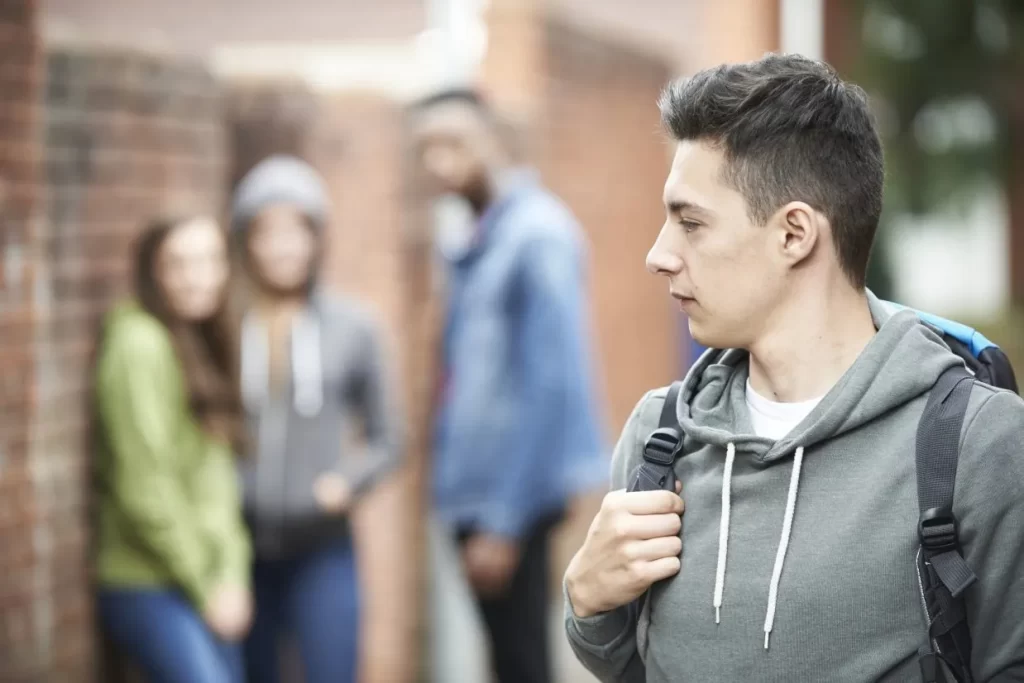College life is an exciting and rewarding experience, but for many students, it can also be a daunting time filled with social challenges and anxieties. Stepping out of your comfort zone and meeting new people can be overwhelming, especially if you struggle with social anxiety. However, with the right strategies and mindset, you can learn to manage your anxiety and thrive in your college environment.
READ ALSO : The Ultimate Guide to Free Online Mindfulness Exercises for Beginners: Discover Inner Peace and Tranquility
Understanding Social Anxiety
Social anxiety is a common mental health condition characterized by an intense fear of social situations, such as meeting new people, public speaking, or attending social events. People with social anxiety often worry excessively about being judged, embarrassed, or rejected by others, which can lead to physical symptoms like sweating, trembling, and rapid heartbeat.
It’s important to remember that social anxiety is a real and valid condition, and it’s not something you can simply “get over.” However, with the right tools and support, you can learn to manage your symptoms and take control of your life.
Strategies for Managing Social Anxiety in College
1. Seek Professional Help
If your social anxiety is severe and impacting your daily life, it’s essential to seek professional help. Many colleges offer counseling services and support groups specifically designed to help students cope with mental health issues like anxiety and depression. Don’t hesitate to reach out for help – there’s no shame in seeking support.
2. Practice Mindfulness and Relaxation Techniques
Mindfulness and relaxation techniques, such as deep breathing exercises, meditation, and progressive muscle relaxation, can be incredibly helpful in managing anxiety. These practices can help you stay grounded and present in the moment, reducing the intensity of anxious thoughts and physical symptoms.
Here’s a simple deep breathing exercise you can try:
- Find a quiet and comfortable place to sit or lie down.
- Inhale slowly through your nose, counting to four.
- Hold your breath for a count of four.
- Exhale slowly through your mouth, counting to six.
- Repeat this process for several minutes, focusing on your breath.
3. Challenge Negative Thoughts
Negative and irrational thoughts are often at the root of social anxiety. It’s important to recognize and challenge these thoughts when they arise. One effective technique is cognitive restructuring, which involves identifying and replacing distorted thoughts with more realistic and positive ones.
For example, if you find yourself thinking, “Everyone will think I’m stupid if I speak up in class,” try to reframe that thought by asking yourself, “Is there any evidence to support this belief?” or “Even if someone does judge me, does it really matter in the grand scheme of things?”
4. Start Small and Build Confidence
Overcoming social anxiety is a gradual process, and it’s important to start small and build your confidence over time. Instead of throwing yourself into overwhelming social situations, try setting smaller, achievable goals, such as making eye contact and smiling at someone in passing, or striking up a brief conversation with a classmate.
As you achieve these small goals, celebrate your victories and use them as motivation to take on slightly bigger challenges. Remember, progress takes time, and setbacks are normal – don’t be too hard on yourself.
5. Join Clubs or Organizations
Joining clubs or organizations related to your interests can be an excellent way to meet like-minded people and practice socializing in a supportive environment. Not only will you have the opportunity to engage in conversations about topics you’re passionate about, but you’ll also be surrounded by individuals who share similar interests, which can help reduce anxiety.
6. Build a Support System
Having a strong support system can make a significant difference when dealing with social anxiety. Surround yourself with understanding friends, family members, or mentors who can offer encouragement and a listening ear when you’re feeling anxious or overwhelmed.
You might also consider joining a support group specifically for individuals with social anxiety. Sharing your experiences and coping strategies with others who understand what you’re going through can be incredibly validating and empowering.
7. Practice Self-Care
Taking care of your overall well-being is crucial when managing social anxiety. Make sure to prioritize activities that promote relaxation and rejuvenation, such as exercise, hobbies, or simply spending time in nature. Getting enough sleep, eating a balanced diet, and limiting caffeine and alcohol intake can also help regulate your mood and reduce anxiety symptoms.

Comparison Table: Therapy Options for Social Anxiety
When it comes to seeking professional help for social anxiety, there are several therapy options available. Here’s a comparison table to help you understand the differences and choose the best approach for your needs:
| Therapy Option | Description | Effectiveness | Accessibility |
|---|---|---|---|
| Cognitive-Behavioral Therapy (CBT) | A goal-oriented approach that helps identify and change negative thought patterns and behaviors. | Highly effective for social anxiety, with long-lasting results. | Widely available through therapists, counseling centers, and online platforms. |
| Exposure Therapy | Gradually exposes individuals to anxiety-provoking situations in a safe and controlled environment. | Effective for reducing fear and avoidance behaviors. | Often combined with CBT and may require specialized therapists. |
| Interpersonal Therapy | Focuses on improving interpersonal relationships and communication skills. | Can help address social anxiety related to interpersonal difficulties. | May be less effective for severe social anxiety than CBT or exposure therapy. |
| Acceptance and Commitment Therapy (ACT) | Teaches mindfulness and acceptance strategies to cope with anxiety and live a more valued life. | Promising results for social anxiety, but more research is needed. | Availability may vary depending on location and therapist expertise. |
| Medication (e.g., SSRIs, beta-blockers) | Prescribed medications can help manage anxiety symptoms. | Can provide relief when combined with therapy, but does not address underlying causes. | Requires consultation with a medical professional and close monitoring. |
It’s important to note that the most effective approach often involves a combination of therapy and, in some cases, medication. Working closely with a mental health professional can help determine the best treatment plan for your individual needs.
Frequently Asked Questions (FAQs)
1. Is social anxiety a mental illness?
Yes, social anxiety disorder (SAD) is a recognized mental health condition listed in the Diagnostic and Statistical Manual of Mental Disorders (DSM-5). It is characterized by an intense fear of social situations and can significantly impact an individual’s daily life and well-being.
2. Can social anxiety be cured?
While social anxiety cannot be completely “cured” in the sense of being eliminated entirely, it can be effectively managed and treated with the right strategies and support. Many individuals with social anxiety are able to reduce their symptoms and lead fulfilling lives with the help of therapy, medication (if necessary), and lifestyle changes.
3. Is it possible to overcome social anxiety without medication?
Yes, it is possible to overcome social anxiety without medication. Cognitive-behavioral therapy (CBT), exposure therapy, and other forms of psychotherapy have been shown to be highly effective in managing social anxiety symptoms. However, for some individuals, a combination of therapy and medication may be recommended by a mental health professional.
4. Can social anxiety be caused by trauma or life events?
Social anxiety can be influenced by various factors, including genetics, brain chemistry, and life experiences. Traumatic events, such as bullying, abuse, or embarrassing social situations, can contribute to the development of social anxiety or exacerbate existing symptoms. However, social anxiety can also develop without a specific triggering event.
5. Is it normal to feel anxious in social situations sometimes?
It is perfectly normal to feel some level of anxiety or nervousness in certain social situations, especially if they are unfamiliar or high-stakes (such as public speaking or meeting new people). However, if these feelings are persistent, excessive, and significantly impair your daily functioning, it may be an indication of social anxiety disorder.
Final Thoughts
Navigating social anxiety in college can be challenging, but with the right strategies and support system, it is possible to manage your symptoms and thrive in your academic and social life. Remember, seeking help is a sign of strength, not weakness, and there are numerous resources available to support you on your journey.
By prioritizing self-care, practicing mindfulness techniques, challenging negative thoughts, and gradually building your confidence, you can overcome the barriers imposed by social anxiety and fully embrace the college experience. Remember, you are not alone, and with perseverance and determination, you can achieve your goals and live a fulfilling life.


